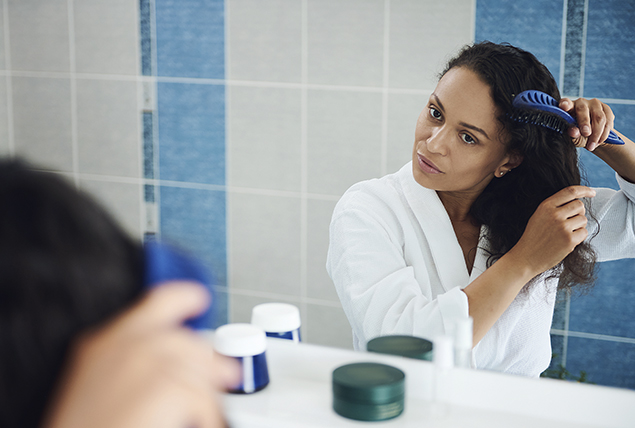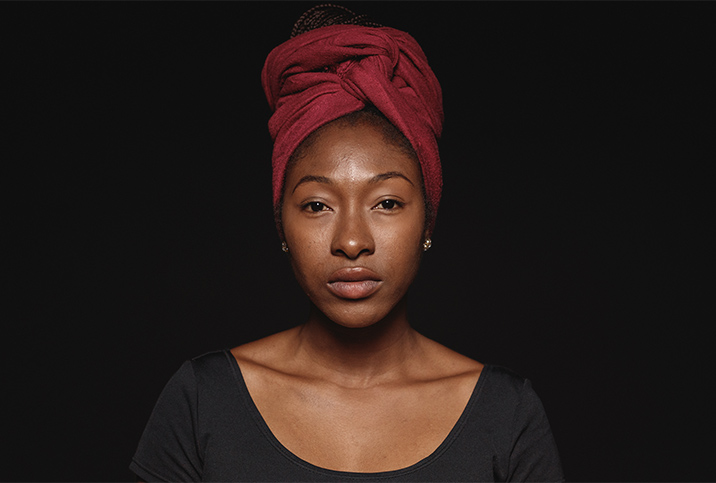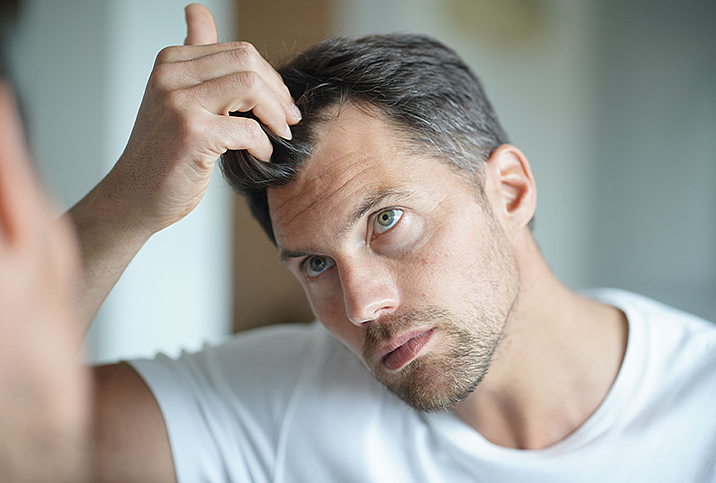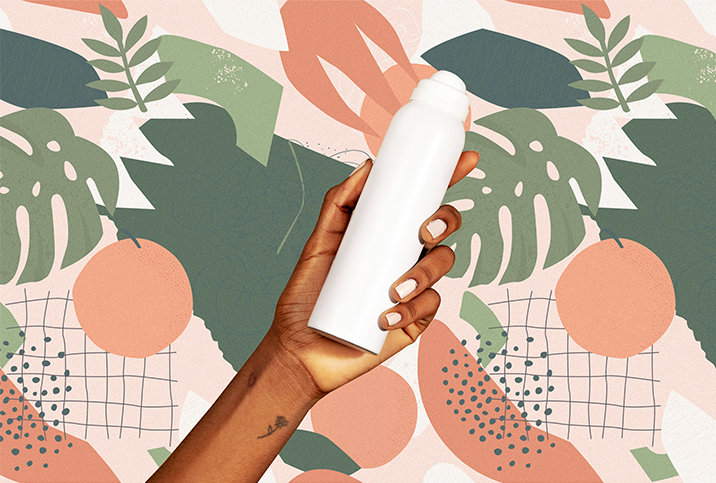Are Hair Relaxers Harmful To Your Reproductive Health?

Multiple studies have suggested a link between hair relaxers and various reproductive health risks such as fibroids, ovarian cancer, uterine cancer and breast cancer.
This flurry of findings have sparked a new wave of lawsuits against some of the cosmetic companies manufacturing hair relaxers, even as study authors say more research is needed to confirm a connection.
Hair relaxers are used by millions of people around the world, with Black women accounting for the largest population of users, roughly 60 percent of the customers, according to Forbes.
But how serious are the risks and should consumers be worried?
What do studies suggest regarding hair relaxers and fibroids?
In a 2020 study published in the American Journal of Epidemiology, the authors assessed hair relaxer use in relation to uterine leiomyomata (fibroids) incidence in 23,000 pre-menopausal Black American women between 1997 and 2009.
The study indicated that 1.64 percent of women who never used chemical hair straighteners developed uterine cancer by age 70. Still, the risk was highest among Black participants, with increases to 4.05 percent for frequent users of these products.
There's potentially a bigger risk of uterine leiomyomata amongst women who use hair relaxers more frequently and over a long period of time (ten years or more). However, the study authors admit it's unclear whether greater African ancestry increases the genetic predisposition to uterine leiomyomata.
They concluded that future studies are needed to confirm whether hair relaxer use and uterine leiomyomata are associated. Uterine cancer rates are rising, especially for Black women. Uterine cancer is the sixth most common cancer in the United States, according to the American Society of Clinical Oncology (ASCO).
What do studies suggest regarding hair relaxers and breast cancer?
The Black Women's Health Study published in Carcinogenesis in 2021 aimed to find out why Black women have higher rates of a number of diseases, such as breast cancer, at a young age. The study followed 59,000 self-identified African American women.
Based on the results, the study indicated that of 50,543 women followed from 1997 to 2017, 2,311 experienced breast cancer. Within that group, the authors compared the incidences of breast cancer between women who reported moderate or heavy use of hair relaxers and women who reported light or no use of hair relaxers.
"Overall, our results are generally reassuring: we found no clear evidence that hair relaxer use is associated with breast cancer risk for most women," Kimberly Bertrand, the lead author of the study, said in a statement.
"However, there was some evidence that the heaviest users of lye-containing products—those who used these products at least seven times a year for 15 or more years, which represents approximately 20 percent of women in our study—had about a 30 percent increased risk of estrogen receptor-positive breast cancer," Bertrand said.
What do studies suggest regarding hair relaxers and ovarian cancer?
In a 2021 study published in Carcinogenesis called the "Sister Study," the researchers aimed to evaluate whether hair products that may contain carcinogens and endocrine disruptors were related to ovarian cancer incidence.
After excluding women with a history of ovarian cancer, 40,559 women ages 35 through 74 were included. Over a mean follow-up of 10 years, 241 women were diagnosed with ovarian cancer. Frequent use of hair relaxers or straighteners (more than four times a year) was associated with an increased risk of ovarian cancer when compared to never use of these products.
According to the authors, the findings suggested that frequent use of hair relaxers which African American and Black women primarily use, may be associated with the occurrence of ovarian cancers.
What do studies suggest regarding hair relaxers and uterine cancer?
A 2022 study examined associations between hair product use and incident uterine cancer among 33,947 participants ages 35 to 74. The participants in this racially and ethnically diverse cohort self-reported their use of hair products in the last 12 months.
Over an average of 10.9 years of follow-up, there were a total of 378 uterine cancer cases. Frequent use of hair straightening products (more than four times a year) appeared to be associated with higher uterine cancer rates.
"These findings are the first epidemiologic evidence of association between use of straightening products and uterine cancer," the authors wrote. "More research is warranted to replicate our findings in other settings and to identify specific chemicals driving this observed association."
What do doctors think about the studies?
"If you look at the results overall, the totality of the data shows a mixed result," Leslie Randall, M.D., gynecologic oncologist at VCU Massey Cancer Center in Virginia, explained. It's not necessarily clear-cut.
"It's hard to draw any firm conclusions—some say the hair relaxers are harmful, and some say they are not. What would be more helpful in these studies is if they did what's called a dose-response assessment to better understand the quantity used associated with the level of risk," Randall said.
Randall added that even in the study on uterine cancer, the association was not strong.
"Sometimes, associations can be due to confounders, which are other things related to the cancer risk that just happen at the same time as the hair relaxer use," she added.
While Black women are at higher risk for uterine cancer, fibroids and breast cancer, as well as being more likely to use hair relaxers, Randall added that the studies are unable to determine whether the relaxer is a cause or just occurring at the same time as other risk factors.
"So I can't confidently speak to the magnitude of the risk based on this data," she said.
More studies are needed to determine the potential reasons why cases of these diseases are highest amongst Black women. According to Randall, this increased risk might be much more complicated than a single product.
"They're probably related to a whole lifestyle of diet, access to good healthcare, access to good food, access to cancer screening tests and so on," she said. "While, of course, it's appealing to find some magic bullet that you can identify and cut out, it's unfortunately probably more complicated than that."
Troy Gatcliffe, M.D., gynecologic oncologist at Miami Cancer Institute in Florida, advised that more studies are needed, and the epidemiological evidence shouldn't necessarily scare women to stop using hair straighteners altogether.
"Phthalates and parabens in hair straighteners can mimic estrogen and fool the body into responding as if they were hormones," Gatliffe said.
"Excessive estrogen can have various effects on the body such as causing the uterine lining or endometrium to go through changes that can lead to cancer. However, we cannot draw a causative effect but the studies provide evidence that hair relaxers should be used with caution and under advisement," he added.
Can you reduce your risk of estrogen-dependent cancers and fibroids?
Estrogen is a hormone in your body that plays a vital role in sexual development and reproductive health. However, estrogen is a carcinogen, or has the potential to cause cancer.
Even though cancer can develop for no specific reason, there are things you can do to potentially help lower your risk of estrogen-dependent cancers. Lifestyle changes, such as regular physical activity, quitting smoking, maintaining a healthy weight and reducing alcohol use can help.
It's also important to get regular screening, which can help to detect some forms of cancer early, such as breast cancer.
Since there are no screening tests for uterine or ovarian cancer, finding a gynecologist is a great place to start. If you notice any changes in your menstrual cycle or your periods are unusually heavy or prolonged, consult your healthcare practitioner. Changes to your bleeding pattern can be a sign of fibroids.
"The main signs and symptoms of uterine cancer are post-menopausal bleeding or perimenopausal abnormal uterine bleeding," Gatcliffe noted.
Ultimately, you should be your greatest advocate if you notice any changes in your body.
The bottom line
The studies don't show a clear answer to "Do hair relaxers cause cancer?" So every woman should make the decision on whether or not to use these hair products for themselves and what feels right to them.


















